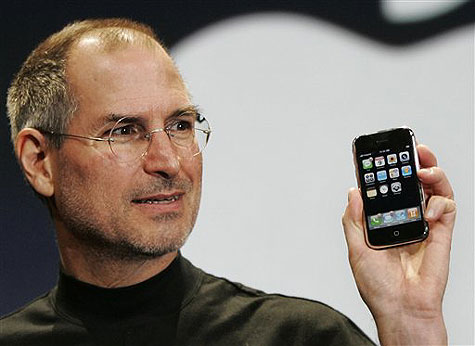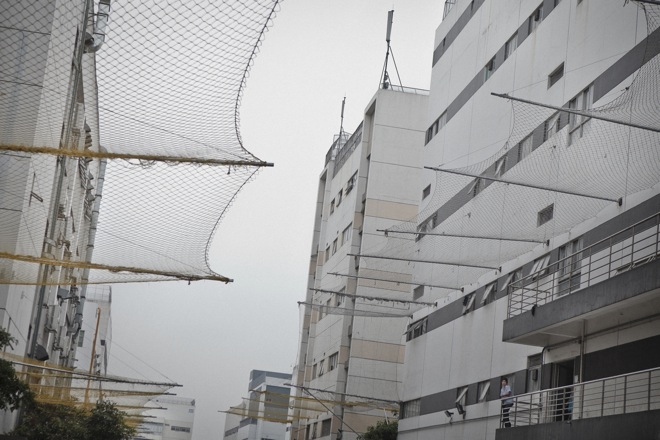
This article will appear in the November issue of The Spark
In Marxist theory, commodity fetishism describes the mystification of social relations between people to objectified relations between things. While the actual value of a product is equivalent to the amount of labour that went into it, products are seen to have a greater value than they actually do. Its because of this that products can be sold at a price much higher than they cost to produce, the difference between the actual use value of a product and its price is surplus value, value that is expropriated by the owners of the means of production.
Marx took the term fetishism from the concept of objects being seen to have some mystical proprieties, such as those objects used in religious ceremonies. There are situations where commodities seem to embody both these types of fetishism; “These products have significant emotional value, they have sentimental value, they’re connected, if you will, to the bloodstream of the person who’s likely to be the purchaser,” those were the words of Michael Bernacchi, a marketing professor at the University of Detroit Mercy commenting on Apple products after the death of CEO Steve Jobs.
One wonders if the workers who assemble Apple products feel that emotional connection. Two years ago it was revealed that as many as 137 workers at Wintek, a Chinese factory that manufactures products for Apple, had been poisoned by n-hexane, a toxic chemical used in touch screens that that can cause muscular degeneration and blur eyesight. The workers wrote to Jobs but received no response from him or anyone else at Apple. “Steve Jobs was indifferent to our poisoning and evaded his responsibility,” said one of the workers, Jia Jingchuan, in a statement released by the Hong Kong labor group Students and Scholars Against Corporate Misbehavior (SACOM).

In the time since the Wintek workers were poisoned, Foxconn, the factory that makes the majority of Apple products, has seen a spate of worker suicides, 17 deaths and other attempts that have been prevented by co-workers. Foxconn now requires new employees to sign a pledge saying they wont attempt suicide, and nets have been installed around buildings to catch employees jumping from the roofs. SACOM found that at Foxconn excessive overtime was rife- One payslip showed a worker did 98 hours of overtime in one month- and during peak periods of demand for Apples iPad, workers were made to take only one day off in 13. Badly performing workers were humiliated in front of colleagues and workers were banned from talking and are made to stand up for their 12-hour shifts.
When Jobs died there was little in the media making reference to him as a sweatshop baron, instead words like “visionary” and “creative genius” were splayed across the pages of major news websites and technology blogs, TechCrunchTV even went so far as to call him “one of the greatest Americans in history”. Steve Jobs was one of the few people who can be pointed too as proof of the American Dream, an ‘everyman’ who built a computer in his garage and three decades later was one of the worlds richest individuals. The reality of course is different. While Steve Jobs was no doubt talented he was at best the equal of the anonymous engineers and developers who work in large firms and universities. Similar technology to that of the early computers made by Apple was being developed at the Palto Alto Research Center (PARC), an institution that received funding from NASA and DARPA, the Defense Advanced Research Projects Agency (so much for the free market) and a number of former PARC engineers took jobs at Apple in the early days.
The myth that surrounds Jobs and the mystification of products prefixed by a lower case I might explain why Apple hasn’t been taken to task by their own consumers. Recently Greenpeace led a successful campaign to get major retailers to stop stocking toilet paper that couldn’t be traced to a sustainable source, and in 2009 students at the University of Canterbury achieved the status of a ‘fair trade’ campus, requiring all coffee to be sourced from sources with better labour and environmental practices. These are local examples of global campaigns. It seems society sets higher standards for cafes and supermarkets than it does for a corporation that is both the worlds largest consumer electronics company and the worlds largest music retailer. If we are going to have a more just society for the international working class, or even just the small reforms offered by ideas like ‘fair trade’ we need to stop thinking of commodities as mystical objects, and CEO’s as prophets.

Exactly one week after Jobs’ death Dennis Ritchie also passed away. Ritchie was the creator of the C programming language and a Co-Creator of the Unix operating system. C and its successors form the basis of many modern computer applications, and variants of Unix run the bulk of computers delivering websites and online services, as well as supercomputers used for scientific modeling. While Ritchie’s contributions to the field of computing are highly significant, he was never a captain of industry like Jobs, and his death has gone virtually unnoticed.
http://www.osnews.com/story/25232/Dennis_Ritchie_Creator_of_UNIX_and_C_Dead_at_70